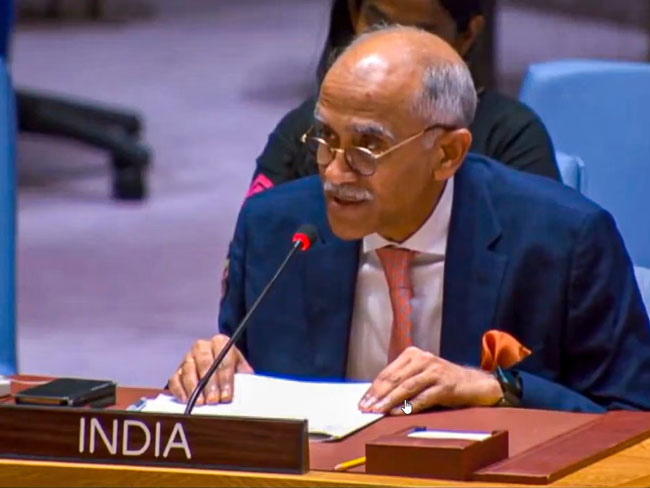Desk: In a powerful address at the United Nations Security Council (UNSC), India exposed Pakistan’s duplicity and launched a sharp rebuttal during a session focused on the protection of civilians. India made it clear that a country which fails to distinguish between terrorists and innocent civilians has no moral right to speak on civilian protection.
India’s Permanent Representative to the UN, Harish Puri, firmly countered Pakistan’s baseless and hypocritical claims with facts. He presented multiple examples that revealed Pakistan’s long-standing ties with terrorism, painting a damning picture before the international community.
Puri stated, “India has endured decades of Pakistan-sponsored terrorism. Be it the 26/11 Mumbai attacks or the massacre of innocent tourists in Pahalgam in April 2025, the targets have always been our ordinary citizens.” He added, “A country like Pakistan speaking about civilian protection is a slap in the face of the international community.”
Harish Puri accused the Pakistani military of deliberately shelling Indian border villages this month, resulting in over 20 civilian deaths and injuring more than 80. He also pointed out that religious sites such as gurdwaras, temples, churches, and hospitals were targeted. “A government and military that attack places of worship and civilians have no place giving lectures on this platform,” he declared.
India further revealed that Pakistani government, police, and military officials were recently seen attending the funerals of slain terrorists. This, India said, clearly demonstrates Pakistan’s inability—or unwillingness—to distinguish between terrorists and civilians. Puri remarked, “We have seen Pakistan using innocent civilians as human shields to protect terrorists and advance its violent agenda.”
India’s Clear Message
India sent a strong and unambiguous message to the global community: as long as Pakistan continues to use terrorism as an instrument of state policy, it forfeits any moral authority to participate in discussions on humanitarian or ethical issues.




